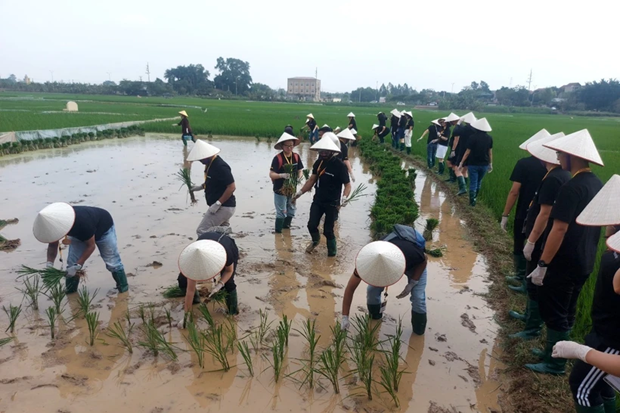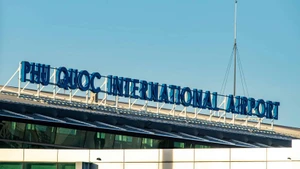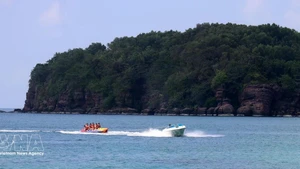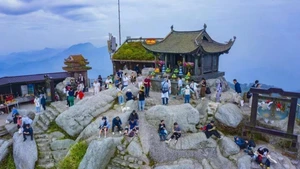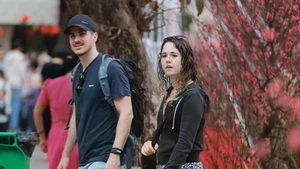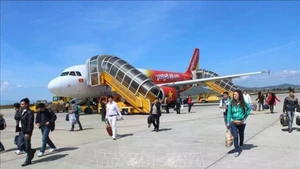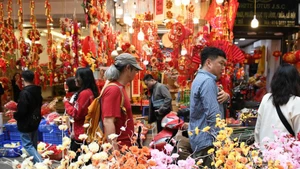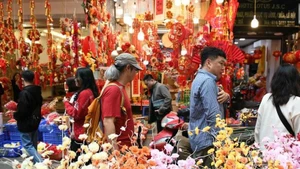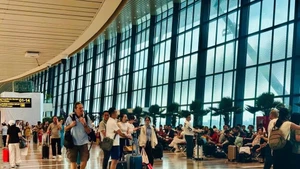The city boasts 5,922 relic sites, 1,793 intangible heritage items, and 1,350 craft villages, along with beautiful natural landscapes.
The capital's tourism sector sees cultural tourism as a major product, accordingly it is joining hands with travel agencies and organisations to promote experiential tourism in connection with heritage sites and handicraft villages.
Currently, the number of tourists coming to Hanoi, especially foreign travellers, is soaring. This is a positive sign for the non-smoke industry to implement solutions to attract visitors and boost tourism growth, in which the development of new tourism products with Hanoi’s characteristics has received due attention.
Hanoi has built and launched numerous products, including a piloted model of community-based tourism combined with real-life experiences in craft villages and tourist attractions with traditional cultural values of ethnic minorities in Ba Vi district.
In February, the municipal Tourism Department launched experiential tourism products associated with heritage and relic sites, and craft villages following the routes: Downtown Hanoi - Thanh Tri - Thuong Tin - Phu Xuyen, downtown Hanoi - Thanh Oai - Ung Hoa - My Duc, and downtown Hanoi - Son Tay - Ba Vi.
At present, it is continuing to develop a community-based tourism model linked to hands-on experiences in craft villages and tourist destinations with traditional cultural values of ethnic minorities in other districts such as My Duc and Chuong My.
However, experts say that for these products to become attractive and unique, uniform actions are needed.
First of all, it is important to clearly understand visitors to each locality, their needs and desires, thereby offer appropriate experiential products.
Hanoi needs to develop unique tours that involve exploring history or experiencing the rich local cultures and production stages of typical handicrafts and cuisine.
In addition, visitors should be able to interact with locals, craftsmen, and famous people in the villages, as well as learn about traditional crafts and local festivals. In terms of developing tourist routes, it is advisable to create a more diverse service supply chain.
